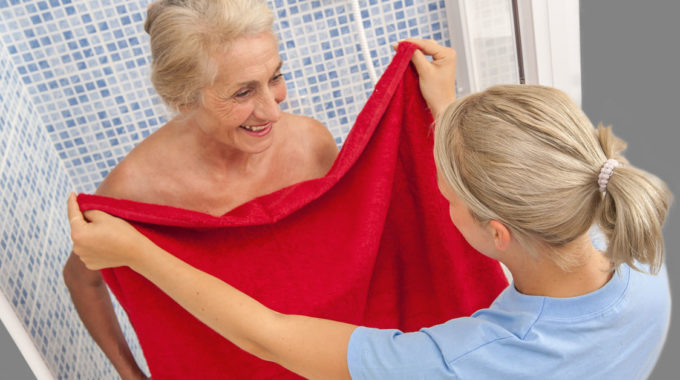
How Often Should We Shower as We Age?
People often think of daily bathing as an important component of personal hygiene and health. Sometimes the adult children of aging parents become concerned when they learn their parents are bathing less often. Indeed, decreased personal hygiene is a major signal that a senior needs more help at home. On the other hand, it’s common for older adults to begin bathing less often. Did you know that there is no official recommendation from any authoritative body about bath frequency? We couldn’t find one research paper attempting to correlate bathing with health outcomes. In fact, medical journals and the blogs of doctors are replete with recommendations to bathe less frequently in certain cases.
How Often Do People Bathe?
In the absence of an evidence-based answer, we can at least consider what’s normal. Surveys find that more than one out of four Americans don’t bathe daily. This varies by country. More Australians and French bathe daily than Americans. However, people of the UK, the Swedes, and the Germans bathe less than Americans. In fact, the majority of German men don’t bathe daily. What is the most bathed country? Nearly 90% of Mexicans bathe daily, making them the most bathed people.
Reasons to Bathe Less Frequently as We Age
- Dry Skin: There seems to be an unofficial consensus among doctors that bathing dries a person’s skin. As we age, skin normally gets dryer and more vulnerable to injury. Showering less frequently may offset that problem.
- Skin Infections: Dry skin can lead to cracking. Cracking invites infection. In particular, older adults have weaker immune systems, so keeping infections outside the skin becomes important.
- Immune Theory: Robert Shmerling, MD, a professor of medicine at Harvard, writes that over-bathing may even compromise a person’s immune system. One theory is that the microorganisms on our skin stimulate our immune systems. Cleaning away too many of them may leave our immune system unprepared for future infections. A complimentary theory is that the microorganisms on our skin form a microbiome where the bacteria we want are in balance with those that we don’t want. Over-bathing may throw that balance off from time to time, interfering with our much older system for dealing with harmful skin bacteria.
- Fall Injuries: When elderly people are at risk for accidental falls and fall injuries, the shower / bathtub ranks as the number one risk area. If bathing daily is unnecessary, then it also invites unnecessary risk for fall injuries.
Less Need to Reduce Odor
As we age, our skin produces less oil, and we are less likely to get sweaty during strenuous activity. Therefore, bathing just to avoid odor becomes less necessary.
In short, there’s no set recommendation for how often healthy people should bathe. It’s common for people to bathe less frequently as they age, and international comparisons suggest this may not be unhealthy. In fact, doctors commonly suggest to patients that they should bathe less frequently than daily for skin health. When considering whether an aging parent needs help at home, look at general cleanliness (among other factors) rather than shower frequency.






